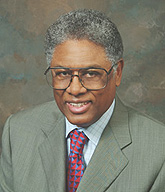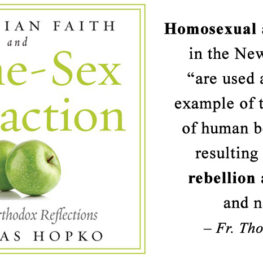
Whatever the vision or rhetoric of the Progressive era, its practice was a never-ending expansion of the arbitrary powers of the federal government. The problems they created so discredited Progressives that they started calling themselves “liberals” — and after they discredited themselves again, they went back to calling themselves “Progressives,” now that people no longer remembered how Progressives had discredited themselves before.
Barack Obama’s rhetoric of “change” is in fact a restoration of discredited ideas that originated a hundred years ago.
…
Although Barack Obama is the first black President of the United States, he is by no means unique, except for his complexion. He follows in the footsteps of other presidents with a similar vision, the vision at the heart of the Progressive movement that flourished a hundred years ago.
Many of the trends, problems and disasters of our time are a legacy of that era. We can only imagine how many future generations will be paying the price — and not just in money — for the bright ideas and clever rhetoric of our current administration.
The two giants of the Progressive era — Theodore Roosevelt and Woodrow Wilson — clashed a century ago, in the three-way election of 1912. With the Republican vote split between William Howard Taft and Theodore Roosevelt’s newly created Progressive Party, Woodrow Wilson was elected president, so that the Democrats’ version of Progressivism became dominant for eight years.
What Theodore Roosevelt and Woodrow Wilson had in common, and what attracts some of today’s Republicans and Democrats, respectively, who claim to be following in their footsteps, was a vision of an expanded role of the federal government in the economy and a reduced role for the Constitution of the United States.
Like other Progressives, Theodore Roosevelt was a critic and foe of big business. In this he was not inhibited by any knowledge of economics, and his own business ventures lost money.
Rhetoric was TR’s strong suit. He denounced “the mighty industrial overlords” and “the tyranny of mere wealth.”
Just what specifically this “tyranny” consisted of was not spelled out. This was indeed an era of the rise of businesses to unprecedented size in industry after industry — and of prices falling rapidly, as a result of economies of scale that cut production costs and allowed larger profits to be made from lower prices that attracted more customers.
It was easy to stir up hysteria over a rapidly changing economic landscape and the rise of new businessmen like John D. Rockefeller to wealth and prominence. They were called “robber barons,” but those who put this label on them failed to specify just who they robbed.
Like other Progressives, TR wanted an income tax to siphon off some of the earnings of the rich. Since the Constitution of the United States forbad such a tax, to the Progressives that simply meant that the Constitution should be changed.
After the 16th Amendment was passed, a very low income-tax rate was levied, as an entering wedge for rates that rapidly escalated up to 73 percent on the highest incomes during the Woodrow Wilson administration.
One of the criticisms of the Constitution by the Progressives, and one still heard today, is that the Constitution is so hard to amend that judges have to loosen its restrictions on the power of the federal government by judicial reinterpretations. Judicial activism is one of the enduring legacies of the Progressive era.
In reality, the Constitution was amended four times in eight years during the Progressive era. But facts carried no more weight with crusading Progressives then than they do today.
Theodore Roosevelt interpreted the Constitution to mean that the President of the United States could exercise any powers not explicitly forbidden to him. This stood the 10th Amendment on its head, for that Amendment explicitly gave the federal government only the powers specifically spelled out, and reserved all other powers to the states or to the people.
Woodrow Wilson attacked the Constitution in his writings as an academic before he became president. Once in power, his administration so restricted freedom of speech that this led to landmark Supreme Court decisions restoring that fundamental right.
Whatever the vision or rhetoric of the Progressive era, its practice was a never-ending expansion of the arbitrary powers of the federal government. The problems they created so discredited Progressives that they started calling themselves “liberals” — and after they discredited themselves again, they went back to calling themselves “Progressives,” now that people no longer remembered how Progressives had discredited themselves before.
Barack Obama’s rhetoric of “change” is in fact a restoration of discredited ideas that originated a hundred years ago.
HT: JWR



